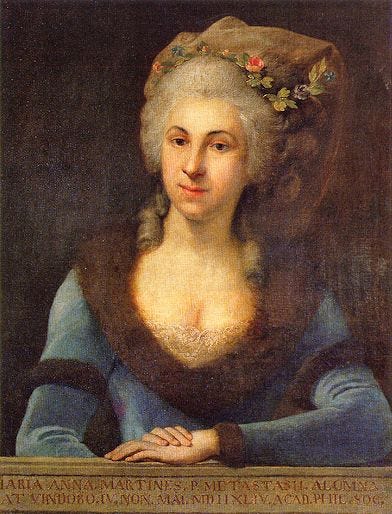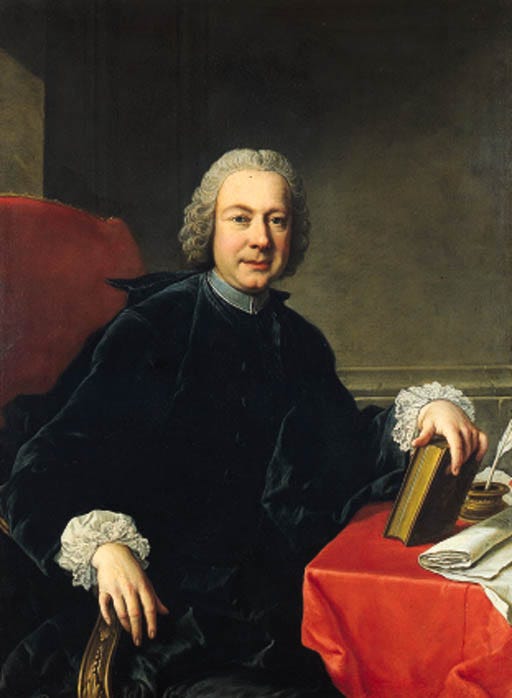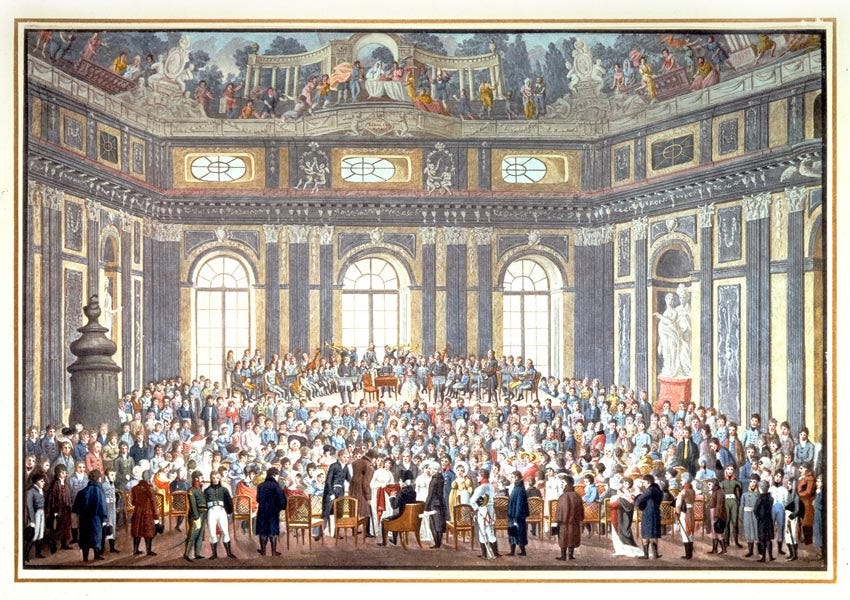
Marianna Martines is an intriguing figure. She was a gifted keyboard soloist, a singer whose voice was frequently heard at court, and a composer of renown throughout Europe. Yet, she and her works are barely known today.

Martines was born in Vienna in 1744 to a family of influence. Her father, Nicolo Martines was the major domo (master of ceremonies) for the Papal embassy in Vienna. Her father, while he was living in Naples, had befriended the poet, Metastasio, who in 1730 became the Poet Laureate for the Habsburg Empire. From 1734 until his death in 1782, he lived with the Martines family and he would prove to be an enormous influence on Marianna’s development and education.
The Martines family lived in a prominent building that still stands today on the Michaelerplatz. As was common then, the bottom floor were reserved for nobility, in this case the Dowager Princess of the Estaházy, and the third floor was where the Martines’s lived, as well as the famous composer and singing teacher, Nicola Porpora. In the top floor attic, lived the young Joseph Haydn, trying to make a living as a freelance musician.
Metastasio recognized Marianna’s gifts early and arranged for her to study the keyboard with Haydn, and take voice lessons with Porpora. He also made sure that received a very thorough standard education, which was uncommon for women of her standing and generation. She was known to be fluent in Italian, German, French, and could speak English.
By the time she was an adult she was known to have a beautiful voice and very accomplished keyboard skills, often performing for the Empress Maria Theresa. Her compositions are often written for a solo voice and it is assumed that she wrote these pieces for her to premiere and sing.
Martines and her sister never married and took care of Metastasio until his death in 1782. The sisters received a substantial inheritance from him, as well as his harpsichord and music library. The sisters became known for hosting music soirees, often attended by Haydn and Mozart, who composed piano music for four hands for he and Marianna to play.
Martines’ last public appearance was on March 27, 1808, for a performance of Haydn’s great oratorio, Die Schöpfung (The Creation), conducted by Salieri for a performance in honor of the now elderly composer. I’ve always loved this engraving by Balthazar Wigand of this important concert. I now always look for a older lady who might be Martines. She passed away four years later, in Vienna, 1812.

There are just a handful of recordings of Martines’ music, but here are the two that I adore.
